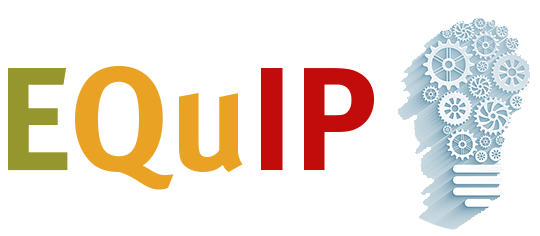Enhancing the Quality of Industrial Policies (EQuIP)

© Equip
EQuIP is a highly innovative programme that empowers governments to effectively design Industrial Policies (IP) through on-the-job coaching and knowledge transfer.
The EQuIP toolbox contains simple and intuitive analytical tools, based on a set of indicators, which can help policymakers in lower income countries to address important strategic questions, such as how to:
- move from an agrarian to an industrial economy
- diversify the economy
- create more jobs in industry
- upgrade industry
- promote the greening of industry
- reduce poverty through industry
With the fundamental objective of capacity development, this toolbox has been operationalized through the development of training manuals, course materials on the different methodologies and an online platform which provides free global access to the toolbox.
Ultimately, the EQuIP diagnostic toolbox, together with the accompanying training and capacity building package, aims to support industrial policy practitioners to undertake a thorough industrial diagnosis and to design evidence-based strategies for inclusive and sustainable industrial development.
See that attached handbook for an overview of what EQuIP is and how it works. See also the EQuIP website for further information (www.equip-project.org).
EQuIP is an institutional capacity-building package to train public servants and analysts for public policy to be based on informed decisions and a critical examination of empirical evidence. This capacity development package builds on an integrated EQuIP toolbox which compiles globally available industrial performance and capability measurement approaches as well as a number of tailor-made new methodologies for industrial diagnosis that also take the social and environmental dimensions of indusrial development into account. At the same time the toolbox supports policy makers to design context-appropriate industrial policy packages and to analyze different options for institutional setups which relate to specific country and political economy contexts.
The different tools of the toolbox cover topics such as industrial growth, sub-sectoral competitive performance, diversification, productive employment generation, and greening of industry. With that, the EQuIP toolbox offers stakeholders a range of methodologies to consider for industrial diagnosis and strategy design in their countries, acknowledging that the most appropriate approaches and tools vary according to country characteristics.
Implementation and work steps
Each tool starts on page 1 with a table that provides some quick facts and an overview of the objectives of the tool, the indicators used and the key (analystical) questions addressed. This is followed by an introductory section which introduces the topic and provides a rationale why the topic is relevant for inclusive and sustainable industrial development more generally and the EQuIP project more narrowly.
Next comes a section that describes the methodolgy, i.e. the analytical process and the different analystical steps. I outlines which indicators are used and how they are calculated and it also includes some suggestions where relevant data can be found.
The third section then applies the methodology for an empirical example (i.e. a case study) in order to illustrate what kind of analyses can be undertaken with the methods presented in the previous section.
The fourth section is dedicated tot he discussion of possible extensions of the tool.
The following section discusses how the tool in question links to other tools in the toolbox or, more precisely, how the topic presented in the tool links to other subjects in the area of inclusive and sustainable industrial development.
Each tool concludes with listings of possible data sources for the analyses and, finally, of references and further readings.
Useful links
Downloads
Characteristics
Phase of intervention
Introducing SIA, Sensitisation, Operating SIA, Management, Climate change
Regions
Global
Target groups
Industrial area management and operator, Local and international consultant and advisor, Policy makers